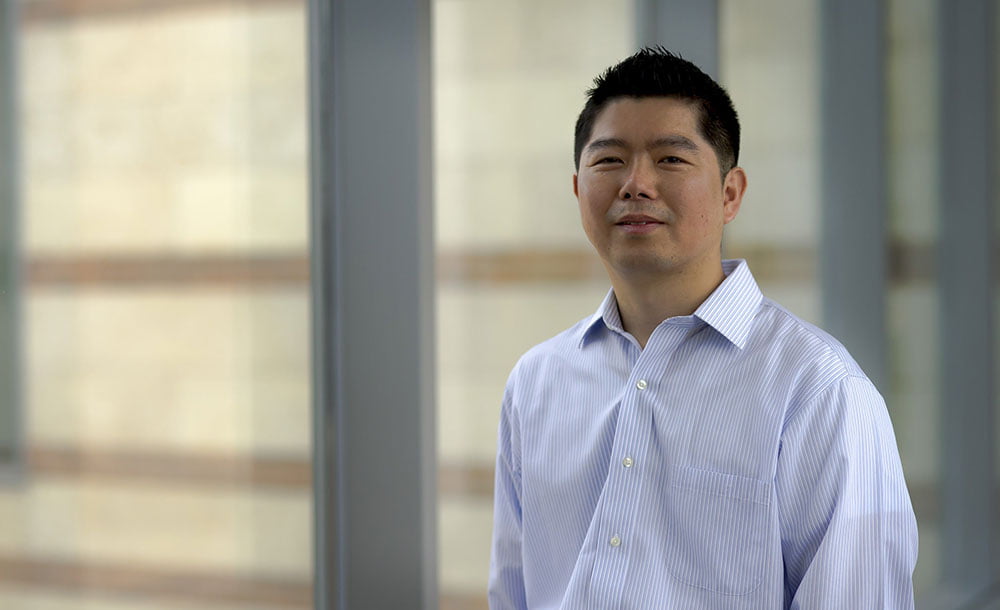A new paradigm in 3D manufacturing
A University of Texas at Arlington researcher has earned a National Science Foundation grant to program 2D materials for 3D manufacturing of soft conductive materials.

Kyungsuk Yum, associate professor in the Materials Science and Engineering Department, and his team will explore how to program polymeric materials for scalable and customizable manufacturing of 3D structures.
The team will build on its findings from earlier research on 2D material programming for 3D shaping published in Nature Communications in 2021. This technology, digital light 4D printing, allows the team to print 2D hydrogels and biological materials encoded with spatially controlled contraction that transforms to programmed 3D structures.
In his new research, Yum will expand this technology with non-biological media such as polymeric soft conductive materials with potential applications for soft electronics, soft machines and wearable devices.
“Our 2D material programming method for 3D shaping has unique advantages as a manufacturing technology, such as scalability and customizability, but designing the materials remains challenging,”
Yum said. “This grant will enable us to address this challenge for broader applications.”
Biological organisms, which use spatially controlled expansion and contraction of soft tissues to produce complex 3D morphologies, inspired Yum and his team to develop the 2D material programming approach for 3D shaping. Now, the researchers will bring this inspiration to create a new paradigm in manufacturing.
“Dr. Yum’s findings from his previous research changed the way we look at soft engineering systems,” said Stathis Meletis, chair of the Materials Science and Engineering Department. “His new grant will allow him to continue his groundbreaking work with applications beyond living organisms.”
-- written by Jeremy Agor, College of Engineering